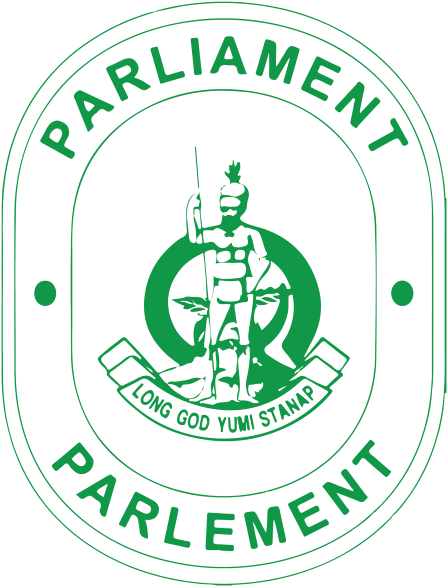
© Parliament of the Republic of Vanuatu 2024
Email: info@parliament.gov.vu
Telephone: (+678) 22229, P.M.B.: 9052
Vanuatu has a Parliamentary democracy political system which is currently headed by a President who has primarily ceremonial powers and who is elected for 5-year terms by a two-thirds majority of an electoral college. This electoral college consists of Members of Parliament and the Presidents of Regional Councils. The President may be removed by the electoral college for gross misconduct or incapacity. The Prime Minister, who is the head of Government, is elected by a majority vote of a three-fourths quorum of the Parliament. The Prime Minister, in turn, appoints the Council of Ministers, whose number may not exceed a quarter of the number of Parliamentary representatives. The Prime Minister and the Council of Ministers constitute the executive Government.
The Parliament of Vanuatu is unicameral and has 52 members who are elected by popular vote every four years, unless earlier dissolved by a majority vote of a three-quarters quorum or by a directive from the President on the advice of the Prime Minister.
Vanuatu uses what is called "the Westminster model" of government. Like most Commonwealth countries, this is actually different in some important ways from the British system whose Parliament is at Westminster.
The Vanuatu form of Government is quite similar to other Commonwealth countries. What makes it different is the French influence. This is probably why the Head of State is called "President" and not "Governor". Unlike other Pacific states, the colonial Government never installed a local Government. whether British or French, so what has come out is designed especially for the need of Vanuatu. An example of that is the National Council of Chiefs (Malvatumauri) which is elected and has advisory under Articles 27 and 28 of the Constitution
The role of President seems to conflict with the supremacy of Parliament which is part of the Westminster model. But the President cannot over-rule Parliament unless the Supreme Court has ruled that Parliament has broken the Constitution. The President is not elected directly by the people. The Constitution grants the President only a restricted role. The President is something of a figure-head. (respected but with no power)like the Monarch of Britain or the Governor-General for a country.
The Westminster model is one thing in theory and another in practice. Vanuatu has important features like the Council of Ministers written into its Constitution. The Constitution is entrenched, it can only be changed by a
two thirds majority of three-quarters of the members of Parliament and for some issues only after a national referendum.
The Constitution gives complete jurisdiction about Constitutional matters to the Supreme Court. This means the Judiciary can stop the Executive from using its power wrongly, following the principle of the Separation of the Powers. Usually the real center of the system is a powerful Cabinet..
Both French and British Laws that applied before Independence continue unless they are inconsistent with independent status. There is a trend towards the use of common law rather than other possible systems. That is because it fits in with Vanuatu having a Government and constitutional system that is related to the Commonwealth version of the Westminster system. Vanuatu has a rich mixture of systems borrowed from the various forms of government, but the main influence is British law in both Parliament and the Judiciary.
Parliament automatically resolves itself into the Committee of the Whole House under the Chairmanship of the Speaker when debating a Private or Government Bill. They are often referred to as the ‘workhorses’ of a Parliament. It is at the Committee stage that the text of parliamentary bills is revised and refined to ensure that it is correct and ready for debate by the full Parliament
Parliamentary Committees are part of the oversight mechanisms that operate in parliamentary democracies. They are expected to pay close attention to bills put forward by government and raise questions and concerns about what the legislation is intended to achieve, and how. One of the most important and potentially powerful committees is the Public Accounts Committee. Its job is to scrutinize how government through ministries, departments and other agencies spends public money.
Committees are able to liaise with the wider society about proposed legislation. They can invite submissions from civil society organizations, the private sector and academics about the issues that a parliamentary bill is intended to address.
Special or standing committees may also be formed. These committees may not include more that seven Members. Each committee appoints it's own chairman. The chairman of the committee has the same power and duties as the speaker of Parliament on all matters which Parliament refers to that committee.

© Parliament of the Republic of Vanuatu 2024